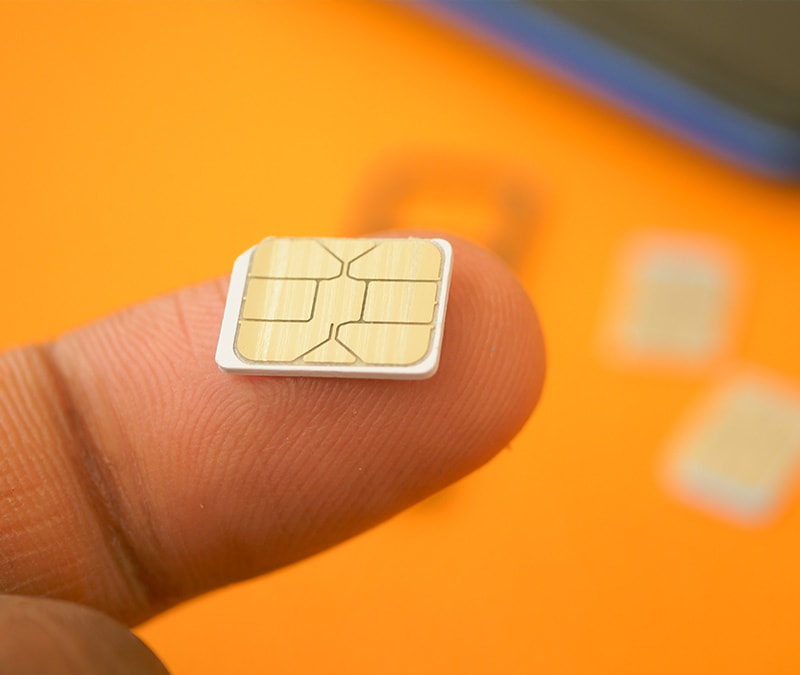Tax season—6 Tips to help protect yourself identity theft
Take these steps to help avoid tax-related identity theft and help protect your potential tax refund. An IRS tool known as an IP PIN can help reduce the odds of this kind of identity theft.

Filing your income taxes isn’t much fun. But finding out that a scammer has already filed an income-tax return in your name to steal your tax refund? That makes Tax Day even less of a treat.
Fortunately, you can protect yourself against tax-related identity theft, a crime in which scammers use your personal information, including your Social Security number, to file an income-tax return in your name. The goal of these scammers is to steal your tax refund.
This is a serious crime and could be the sign of even more trouble in your future. If criminals have enough of your personal information to file a fraudulent tax return in your name? They might also have enough to open credit card accounts or loans in your name. They might be able to access your online bank accounts or credit card portals.
Tax identity theft is such a big program that the Federal Trade Commission each year hosts Tax Identity Theft Awareness Week starting on the last Monday in January. In 2022, the week will start Jan. 31. During the week, the FTC holds several webinars providing consumers tips on how to identify and avoid tax identity theft.
Fortunately, you can take steps to protect yourself against tax-related identity theft. That includes taking advantage of an IRS tool — its Identity Protection Personal Information Number, better known as an IP PIN — to help reduce the odds of this kind of identity theft.
Here are the steps you can take to avoid tax-related identity theft.
Watch for the signs that you’re a victim
The sooner you discover that you’re a victim of tax-related identity theft, the sooner you can take action to minimize the damage.
The most obvious sign of trouble? You try to electronically file your tax return only to get a message from the IRS that someone has already filed a return in your name using your Social Security number. That’s a sure sign that you’re a victim of tax-related identity theft.
The same thing can happen if you file your tax returns by mail. If the IRS sends a letter back stating that it already has a return on file in your name, that, too, is a sign of identity theft.
Those are the two most obvious signs of tax-related identity theft. You should be wary, too, if you receive a notice from the IRS saying that you created a new online account at IRS.gov when you know you never took such a step. That’s another sign that someone is using your personal information.
Be sure to keep a watch for these signs of tax identity theft. And if you do receive a letter or notice from the IRS stating that someone has filed a return in your name? Don’t ignore it. This is a problem that won’t just go away.
Report the identity theft immediately
Once you know that you’re been the victim of tax-related identity theft, immediately complete IRS Form 14039, Identity Theft Affidavit. This is the form that taxpayers use to report fraudulent returns to the IRS.
You can complete the form at IRS.gov, print it out and attach it to your paper tax return. Mail both the form and your return to the IRS, following the instructions on the form.
If you want to see what your fraudulent tax return looks like — and this information can be helpful — you can request a copy of the fake return from the IRS. Visit the IRS’ page on dealing with fraudulent returns to find out more about ordering a copy.
It makes sense, too, to report this crime to the Federal Trade Commission. Another important step is to contact the three national credit bureaus of Experian, Equifax and TransUnion. The bureaus can place a fraud alert on your credit reports.
You might also consider placing a credit freeze with all three bureaus. When you freeze your credit, lenders, credit card providers and other financial institutions can’t pull your credit without your permission. This means that scammers can’t take out new loans or open credit card accounts in your name without the bureaus contacting you first. This is a good way to slow identity thieves.
You can also visit IdentityTheft.gov and report the crime there.
Check your other accounts
After you inform the IRS and credit bureaus about the identity theft, study your online bank and credit card accounts. The same criminal who used your personal information to file a tax return in your name might also use it to access your online credit card portal and your online bank accounts. Look for any suspicious charges or withdrawals on these accounts.
While you’re at it, you may want to check if your bank or credit card provides alerts for each time your account is accessed, or if you can set up two-factor authentication, for an added layer of protection.
If you find suspicious charges, notify your bank and credit card providers. They can close off your accounts to protect you from future suspicious activity. The faster you report fraudulent charges or transactions, the more likely it is that you won’t have to pay for them.
Check these accounts daily. If you ever see suspicious activity, contact your credit card provider and bank immediately.
You should also order copies of your three credit reports – one each maintained by the national credit bureaus of Experian, Equifax and TransUnion – from AnnualCreditReport.com. During normal times, you can order each of these reports at no charge once a year. During the COVID-19 pandemic, though, the credit bureaus are allowing consumers to order their credit reports for free once every week.
Once you order your reports, check them carefully. They’ll list any open credit or loan accounts in your name. If you see any that you don’t remember applying for, it could be a sign that someone has used your personal information to take out loans or open credit cards in your name.
Get an IP PIN
An Identity Protection Personal Identification Number, better known as an IP PIN, is another tool that you can use to combat tax-related identity theft.
An IP PIN is a six-digit number that the IRS assigns to you. When you file your income-tax return, you’ll also provide the IRS with your IP PIN.
There are two benefits to this: First, the IRS can use this number to verify that it is actually you filing your return. Secondly, your IP PIN also makes it more of a challenge for criminals to file a tax return in your name. Identity thieves will now need to know not just your name, Social Security number and address to file such a return. They’d also need to know your IP PIN.
Getting an IP PIN requires that you first register an online account with IRS.gov. Once you do that, you can visit the IRS’ online Get an IPN tool to sign up for your IP PIN.
To register for your number, you'll need your email address, Social Security Number or Individual Tax Identification Number, tax filing status, mailing address and one financial account number linked to your name. This number can be the last eight digits of your credit card, the account number on your mortgage or home equity loan, the account number of your car loan or the account number of your home equity line of credit.
Getting an IP PIN is even easier — it’s automatic, in fact — if you have already been the victim of identity theft. If you are a confirmed victim of identity theft, the IRS will mail you a CP01A Notice with a new IP PIN each year. This process will be automatic. If you’ve created an account with the IRS, you’ll also be able to view your CP01A Notice online.
Otherwise, your IP PIN remains valid for one calendar year, after which you’ll have to sign up for a new one. That might seem like too much work, but it’s certainly worth it to avoid tax-related identity theft.
Be careful with your personal information
The most important step in preventing this form of identity theft? You need to protect your personal information.
This means never sending your Social Security number, address, birthdate or other personal information in response to emails from people you don’t know. Criminals often engage in a scam known as phishing to get this information. They might send you an email that looks like it’s coming from your bank or credit card provider stating that they need to verify your account. To do this, they’ll need your Social Security number, account number or some other key form of identification. Of course, it’s just a trick to steal this information.
Or maybe scammers send an email from what looks to be your bank stating that they’ll close your checking account if you don’t click on a link. When you click on the link, you are taken to a new website that requests your account number, name, address and Social Security number. Once you provide this information, the scammers have what they need to access your online financial accounts, take out loans in your name and, yes, file a fraudulent tax return.
Remember, companies will never ask for your sensitive personal or financial information through email. If you get an email asking for this, it’s from a scammer. Delete that email immediately. And never click on any of the links.
Don’t let your guard down
Identity theft is not only a violation of your privacy, it’s also a hassle. If you’re the victim of this crime, you’ll need to cancel and replace your credit cards, monitor your bank accounts and review your credit reports to make sure no one has taken out loans or opened credit card accounts in your name.
The bad news? The criminals who perpetrate these crimes are showing no signs of slowing their activity.
That’s why it’s so important to remain vigilant. If you can’t file your tax return online, or you receive a letter from the IRS stating that someone has already filed a return in your name, don’t delay. Contact the IRS, your bank, your credit card companies and the three national credit bureaus of Equifax, Experian and TransUnion immediately. The faster you take action, the sooner you can begin to recover from identity theft.

Cyber threats have evolved, and so have we.
Norton 360™ with LifeLock™, all-in-one, comprehensive protection against viruses, malware, identity theft, online tracking and much, much more.
Try Norton 360 with Lifelock.
Editorial note: Our articles provide educational information for you. Our offerings may not cover or protect against every type of crime, fraud, or threat we write about. Our goal is to increase awareness about Cyber Safety. Please review complete Terms during enrollment or setup. Remember that no one can prevent all identity theft or cybercrime, and that LifeLock does not monitor all transactions at all businesses. The Norton and LifeLock brands are part of Gen Digital Inc.





Want more?
Follow us for all the latest news, tips, and updates.